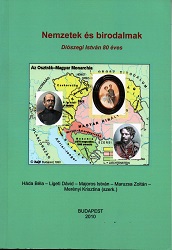
We kindly inform you that, as long as the subject affiliation of our 300.000+ articles is in progress, you might get unsufficient or no results on your third level or second level search. In this case, please broaden your search criteria.

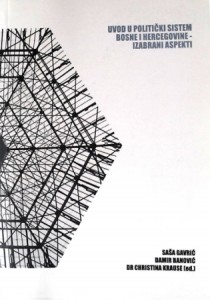
Ljudska prava se temelje na pojmu urođenog dostojanstva svih ljudskih bića. Univerzalna su, neotuđiva, nedjeljiva i međuovisna. Vijeće Evrope je izgradilo efiaksan sistem zaštite ljudskih prava kroz Evropsku konveciju o zaštiti ljudskih prava i osnovnih sloboda i Evropski sud za ljudska prava. U Bosni i Hercegovini ljudska prava se štite na nivou države, kao i na nivou entiteta. Ustav Bosne i Hercegovine, te ustavi entiteta, na specifičan način štite ljudska prava, kroz direktnu primjenu Evropske konvencije o zaštiti ljudskih prava i osnovnih sloboda.
More...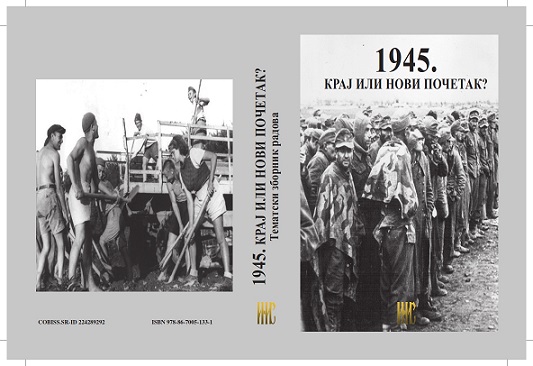
During the last military operations of WWII some 70,000 members of various Yugoslav collaborationist forces and their families surrendered to the British and American authorities. At first they were allotted the status of “surrendered enemy personal” and later on of “displaced persons” under temporary care of international humanitarian organizations and the British Army and the Screening Commission. The new Yugoslav authorities demanded extradition of almost all Yugoslav citizens under control of the Allied military authorities. As a matter of fact, the number of real war criminals among the DPs (especially among the ustasha, members of the Zbor of Dimitrije Ljotić, Slovenian collaborationists, but also among the chetniks and Croatian home guards) whose guilt could easily be proven, was considerable. However, the way the new Yugoslav regime dealt with both collaborationists and war criminals and with other political and ideological enemies, went beyond the stipulations of the rule of law and of law of nations. Together with the increasing Cold War tensions, this contributed significantly to the siding of the larger part of the public and most political forces of the Western countries with the people who pleaded respect for the law of nations and for basic human rights, demanding protection from forcible repatriation. Conservative political forces and media, as well as various religious organizations strove to depict the collaborationists of yesterday as anticommunists and model Christians, whereas the disproportionate oppression of the new Yugoslav regime during the first months and years after the war provided them with enough material to argue before the world public that no-one extradited to Tito could hope to have a fair trial in Yugoslavia. American and British diplomatic reports confirmed this, so the question of extradition of DPs became, together with the question of Trieste, the main bone of contention in the relations between Tito and Yugoslavia with their former wartime allies. Desirous of solving this unpleasant question as soon as possible, but also of convincing Tito in their good intentions, the British authorities entrusted brigadier Fitzroy McLean with screening Yugoslav collaborationist refugees. After more than a year of work his commission decided that out of several thousand people, some forty were to be extradited: the Cold War atmosphere, infringements of human rights in the socialist Yugoslavia, but also fatigue and pressure of the British public opinion to get the affair off the agenda enabled many collaborationists whose guilt was indisputable, to avoid trial and to acquire permanent status of (political) refugees. Since 1947, as most of the emigre Serbian collaborationists had acquired refugee status, a new phase in the life of the Serbian emigration started. At prodding of Jakov Ljotić, the leader of the Zbor movement, most of his adherents applied for work and stay in Great Britain, from where certain groups moved to the USA, Canada and Australia. Former members of the chetnik units usually settled down in England and in the USA, although some chetniks and members of the Zbor preferred to stay in Western Germany and start a new life there. Although research has so far shown that the Serbian (and Yugoslav) emigration was disunited and often prey to internal strife, it was unquestionably united in an anti-communist front. It comprised a permanent public campaign against Tito and the Yugoslav authorities, diplomatic intriguing aimed at destabilizing the regime in Yugoslavia, and in several cases even terrorist actions. For these reasons the emigrants were often targeted by Yugoslav intelligence and security services and their conflict with these services lasted to all intents until late 1980s and the bloody break-up of Yugoslavia that ensued.
More...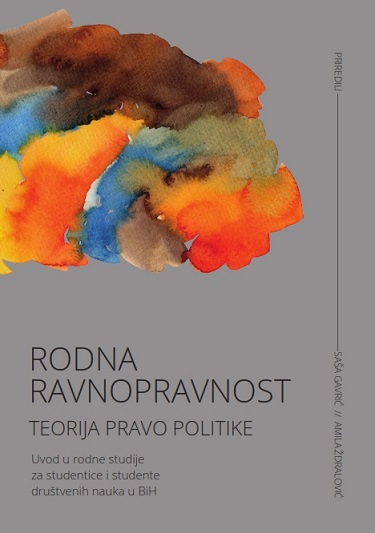
Bosna i Hercegovina (BiH) jedna je od država sa složenim ustavnim sistemom. Iako Ustav BiH ne sadrži izričite odredbe koje se odnose na ravnopravnost žena i muškaraca, zaštita ljudskih prava i temeljnih sloboda predstavlja jedan od stubova ustavnog sistema. Ustav BiH tako utvrđuje da će se svim osobama u BiH bez diskriminacije osigurati uživanje prava i sloboda predviđenih Ustavom ili međunarodnim sporazumima koji su navedeni u Aneksu I Ustava. Zabrana diskriminacije izričito uključuje zabranu diskriminacije po osnovu spola (član II/4 Ustava BiH). Također, potrebno je podsjetiti da se Evropska konvencija za zaštitu ljudskih prava i temeljnih sloboda i dodatni protokoli (EKLJP) primjenjuju direktno u BiH (član II/2 Ustava BiH), a da se u Aneksu I navodi popis dodatnih sporazuma o ljudskim pravima koji se neposredno primjenjuju u BiH (uključujući i Konvenciju o ukidanju svih oblika diskriminacije žena te Konvenciju o državljanstvu udatih žena).
More...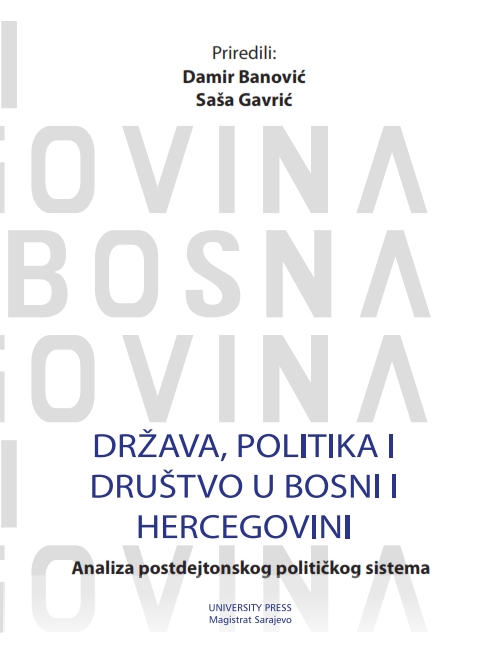
Ured visokoga predstavnika međunarodne zajednice i Specijalnog predstavnika Europske unije u Bosni i Hercegovini (u tekstu: visoki predstavnik, Ured visokog predstavnika) je ad hoc međunarodna institucija/tijelo/organ predviđena općim okvirnim sporazumom za mir u Bosni i Hercegovini (u tekstu: dejtonskim mirovnim sporazumom, Sporazumom) 1995, a formalnopravno potvrđena rezolucijom Vijeća sigurnosti Ujedinjenih nacija. Radi se o vrlo specifičnoj instituciji koja ima status diplomatske misije međunarodne zajednice država, koja na osnovu ovlasti i odluka Upravnog odbora Vijeća za implementaciju mira, međunarodnoga tijela koje upravlja mirovnim procesom u Bosni i Hercegovini, predstavlja konačni autoritet u tumačenju i provedbi Sporazuma. Rad deskriptivno prikazuje osnivanje, status, ovlasti, rad i djelovanje ove institucije u Bosni i Hercegovini u svjetlu tranzicijskog procesa kada će, u konačnici, iza specijalnog predstavnika stajati Europska unija sa svojim organima, a ne, još uvijek nejasno definirana i označavana, međunarodna zajednica država.
More...
The opening chapter set out the conceptual framework for exploring the question of Who is a normative foreign policy actor? The European Union and its Global Partners. This chapter constitutes one of several case studies applying this framework to the behaviour of the European Union, whereas the others to follow concern China, India, Russia and the United States. A normative foreign policy is rigorously defined as one that is normative according to the goals set, the means employed and the results obtained. Each of these studies exploreseight actual case examples of foreign policy behaviour, selected in order to illustrate four alternative paradigms of foreign policy behaviour – the normative, the realpolitik, the imperialistic and the status quo. For each of these four paradigms,there are two examples of EU foreign policy, one demonstrating intended consequences and the other, unintended effects.
More...
This chapter argues that Russia is in the process of re-branding itself internationally, with a variety of normative arguments increasingly creeping intoits wider international discourse. By appealing to norms, Russia tries to reformulate the key messages it sends to the world and implant the concept of its power worldwide. Yet given that Russia’s normative messages are often met with scarce enthusiasm in Europe, it is of utmost importance to uncover how the normative segment in Russian foreign policy is perceived, evaluated and debated both inside Russia and elsewhere. Within this framework, this paper focuses on aset of case studies highlighting the normative and non-normative dimensions of Russian foreign policy. These include Russia-EU trans-border cooperation, Moscow’s policies towards Estonia, Poland, Ukraine/Georgia and the UK, Russian strategies in the ‘war on terror’ and energy issues.
More...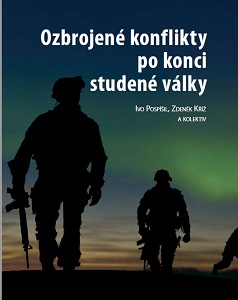
Zejména v souvislosti s vojenskou invazí v Afghánistánu a Iráku se na mezinárodní úrovni otevřela diskuse o dosahu lidskoprávní ochrany v ozbrojených konfliktech, tj. diskuse o tom, zda lidská práva jsou aplikovatelná pouze v době míru, zatímco v době války se uplatňují výlučně speciální normy humanitárního práva, a zda je stát povinován dodržovat lidská práva pouze teritoriálně, tj. na svém území, nebo též na území jiných států, na nichž dočasně vykonává část suverenity, například v průběhu okupace.
More...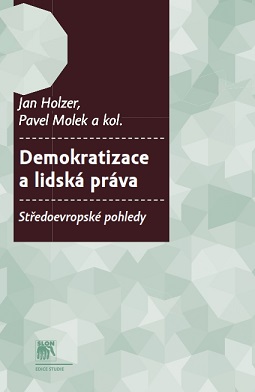
Výzkum demokratizace se v posledních letech dostal do stavu, kdy množství produkované literatury vytváří korpus jednoho z nejkomplexněji studovaných fenoménů sociálních věd. Tato situace logicky plyne z více než dva a půl tisíce let starého úsilí pochopit procesy, které s budováním demokracie souvisejí a v podstatě je definují [Coppedge 2012: 1]. Svébytný trend je možné sledovat i dnes, kdy do výzkumu demokracie vstupují nové, „ne--tradiční“ dimenze, které nacházejí inspiraci v různých historických etapách (např. rané období moderní Evropy), strategických přístupech (teorie her), kulturách (Asie, arabský svět), dědictvích (postkolonialismus, postkomunismus) nebo samostatných otázkách, které s demokratizací stále více souvisejí (válka a mír) [Coppedge 2012: 2; Sadiki 2009]. Toto horizontální rozšiřování, které je založeno na zahrnutí širšího okruhu témat a výzkumných problémů, je doplňováno prohlubováním vertikální dimenze, jež odkazuje na čistě metodologické debaty v rámci sociálních věd. Dochází tak k neustálému rozvoji a doplňování výzkumných nástrojů [King, Keohane, Verba 1994; Geddes 2003; George, Bennett 2005; Brady, Collier 2010].
More...
Lidská práva, snad ještě víc než demokracie, se v nedávné době stala skutečným lingua franca jak vnitrostátní a mezinárodní politiky, tak do značné míry i politické teorie a v jejím rámci teorie demokracie a demokratizace [Tasioulas 2012: 2]. Stále se rozrůstající shluk politických problémů, výzev a sporů je rámován jazykem lidských práv, což vede některé autory a autorky k varováním před nekontrolovanou expanzí lidskoprávního diskursu i aktivismu. V jejich důsledku má hrozit rozmělnění speciálního významu a postavení lidských práv, stejně jako pojmová neurčitost [Griffin 2008: 14 an.]. Lidská práva jsou zároveň úzce propojena s demokracií, ať už v rovině praktické (politické a soudní) nebo opět v souvislosti s její politicko-teoretickou nebo ústavně-právní reflexí. Účelem této kapitoly je jednak načrtnout základní kontury a nejdůležitější rozlišení v rámci pojmu lidských práv, a v druhém sledu vrhnout světlo na některé výzvy a problémy, kterým teorie lidských práv čelí a které mohou mít významný dopad na chápání demokratických, demokratizujících se i nedemokratických režimů.
More...
Benjamin Constant kdysi ve slavné přednášce rozlišil dva druhy svobod: na jedné straně stojí svoboda starých spočívající „v kolektivním, a přitom přímém výkonu určitých částí suverénní moci, ve veřejném projednávání války a míru, v uzavírání spojeneckých smluv s cizinci, v hlasování o zákonech, ve vyhlašování rozsudků, ve zkoumání činnosti úředníků, v odhalování jejich činnosti před celým lidem, v možnosti jejich obžaloby, odsouzení či zproštění viny“ [Constant 2006: 79 an.]. Na druhé straně je pak svoboda moderních, jejíž podstatou je poklidné užívání individuální nezávislosti. V antice byl jedinec téměř vždy suverénem ve veřejných záležitostech, zároveň byl však otrokem v soukromých vztazích. Zatímco pro staré bylo soukromé jednání podřízeno přísnému dohledu, prvotní potřebou moderních národů je nezávislost jednotlivce, a proto po nich nelze žádat, aby tuto nezávislost obětovaly politické svobodě [Constant 2006: 90].
More...
Idealistická témata se v přemýšlení o mezinárodní politice objevují již po staletí, ale až několik posledních desetiletí se k aspiračním úvahám přidávají také empirické studie, snažící se popsat realitu. Se zřízením poválečné Organizace spojených národů a s přijetím Všeobecné deklarace lidských práv v roce 1948 se téma lidských práv pomalu dostávalo do zorného pole teoretiků mezinárodních vztahů. K výraznému zvýšení pozornosti pak došlo s konáním Konference o bezpečnosti a spolupráci v Evropě, která v polovině 70. let 20. století vyvrcholila přijetím závěrečného aktu Konference o bezpečnosti a spolupráci v Evropě, jenž obsahoval desatero nejdůležitějších principů pro vztahy mezi státy. Mezi nimi na sedmém místě figuroval bod „Respektování lidských práv a základních svobod včetně svobody smýšlení, svědomí, náboženství nebo přesvědčení“. Další zájem o toto téma vybudila zahraniční politika amerického prezidenta Jimmyho Cartera, jenž v letech 1977 až 1981 výrazně povýšil lidská práva v agendě své administrativy.
More...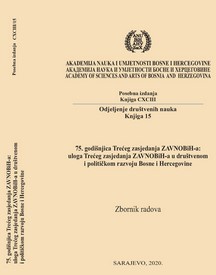
At the First and Second Session of ZAVNOBiH, the representatives of the peoples of Bosnia and Herzegovina laid the foundations of the modern statehood of Bosnia and Herzegovina. At the sessions of ZAVNOBiH, the peoples of Bosnia and Herzegovina jointly created their federal unit, which became part of the federal Yugoslavia with the political will of its delegates at the Second Session of AVNOJ. The Third Session of ZAVNOBiH in Sarajevo marked the end of the state-building process in Bosnia and Herzegovina within the second Yugoslav state. ZAVNOBiH was transformed into the National Assembly of Bosnia and Herzegovina in accordance with legislative acts adopted at the session, while the Presidency of ZAVNOBiH turned into the Presidency of the National Assembly. Bosnia and Herzegovina also received its first post-war government. Legislation adopted at the Third Session of ZAVNOBiH, i.e. the National Assembly of Bosnia and Herzegovina, created the independent state organisation of Bosnia and Herzegovina, which was equally positioned with other federal units in the Yugoslav state. An additional enhancement to the statehood of Bosnia and Herzegovina was made by the adoption of the first Constitution of the People’s Republic of Bosnia and Herzegovina. Thus, immediately after the end of the Second World War, Bosnia and Herzegovina defined its internal structure by the highest legal act, in accordance with the then political and economic circumstances. It was defined as a people’s republic that conferred sovereign rights and statehood. With the adoption of the Constitution, Bosnia and Herzegovina completed the state-building process and it can be stated that from 31 December 1946, it fully existed and functioned as a state organisation. At the same time, it is necessary to not lose sight of the fact that Bosnia and Herzegovina, by the will of its representatives, was part of a wider state - Yugoslavia. The sovereignty and statehood of Bosnia and Herzegovina were limited by the sovereignty of the federal state. These are the sovereign rights that Bosnia and Herzegovina transferred to the FPRY, given that it was an integral part of the unified socioeconomic and political system of AVNOJ Yugoslavia.
More...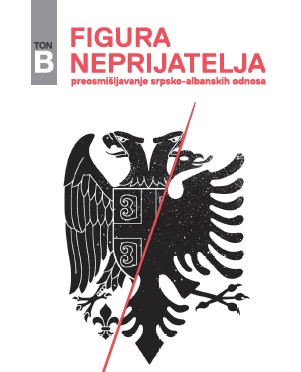
This paper focuses on inter-ethnic relations in Kosovo by analysing the process of adoption of two relevant minority-laws in Kosovo: the Law on Historic Centre of Prizren and the Law on the Village of Velika Hoča/ Hoce e Madhe. Using critical frame analysis, the paper examines what is going on during legislative process, what representations are made of the issues on the agenda, beneficiaries of the law and other actors involved in the process. The findings show that even minority favourable legislation can serve as an exclusion mechanism. While legislative framework in Kosovo guarantees full protection of minority rights, political institutions in Kosovo encourage ethnic cleavages and inter-ethnic tensions.
More...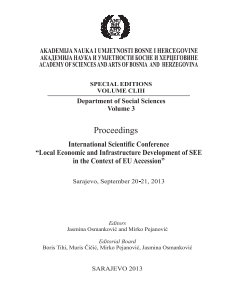
Nowadays, the importance of the local community is growing all over, but the fact that Bosnia and Herzegovina (hereinafter: BiH) has no state law on local self-government that would clearly define the position and the role of citizens in the system administration, is not officially recognized at the state level. Also, it is important to note that this area is not under the direct jurisdiction of any of the ministries. Given that there are entity laws and cantonal laws, or municipal statutes, there are cases of overlapping responsibilities of higher and lower levels of government, for example between entities and cantons or between cantons and municipalities. Here it is matter of the fulfilment of the obligations of BiH in terms of implementation of the principles contained in the European Charter of Local Self-Government of the Council of Europe. BiH Constitution did not specifically specify constitutional and legal position of municipal and city governments. In terms of the constitutional provisions, in the Federation of BiH cantons have all the responsibilities that are not expressly granted to the Federal Government. The Constitution of the Republic of Srpska also, among other things, determines the constitutional order based on local government. In the Brčko Distrikt situation is somewhat simpler because the District is considered a single unit of local self-government, and in this sense instruments of international law are directly applicable. Local Governance in BiH is devoted adequate attention through special entity laws. Separate entity legislation does not end the process of division of the system of local self-government, because each canton in the Federation of BiH has a law on local self-government, and in addition, municipalities have statutes. As in RS there are no regional or cantonal laws on local self-government, the municipalities are considered the base units of local government. This is an advantage in RS compared to the Federation of BiH in which the system of local government is compounded by the existence of a cantonal law. “The system of local government shall be regulated by law. A law may entrust the performance of local government tasks to the city. The city and the municipality shall be entitled to revenues determined by law and shall be provided with the funding for the performance of their duties.” The Act contains a specific provision on the so-called local governments that have followed different laws.
More...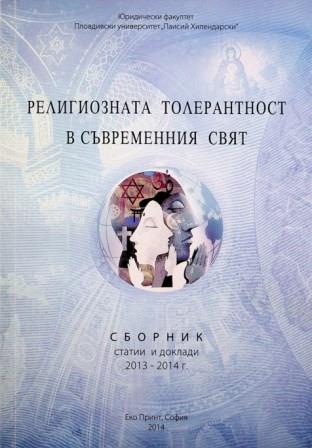
Article 11, paragraph 4 of the Bulgarian Constitution forbids the formation of political parties on ethnic, racial or religious basis. The purpose of this norm is not to allow the formation and the functioning of political parties whose members belong to specific ethnic, racial or religious group and therefore are not accessible to people outside this group. The state organ with the task of monitoring the compliance of the existing political parties with art.11, par.4 of the Constitution, is the Constitutional Court that is competent to rule on challenges concerning the constitutionality of political parties and associations. Constitutional court decisions, including those rendered on disputes on the constitutionality of political parties, formed on religious basis, has formal and material res judicata effect. But when the Constitutional court reviews the constitutionality of a political party it acts not only as a “court of norms” but also as a “court of facts”. So the main question is whether and to what extent art. 21, par. 5 of the Constitutional court act, forbidding the filing of further motions when the Constitutional court has already rendered a decision on the same subject, is applicable to disputes concerning the constitutionality of political parties. According to the author in such cases the res judicata effect comprises only those facts that are present and known to the court at the moment of rendering its decision. Consequently, there is no obstacle to file a motion, based on new facts, that were non-existent at the moment of rendering the previous decision. Otherwise, it would mean that once the constitutionality of a certain political party has been reviewed by the Constitutional court this same party is forever immuned from the threat of being proclaimed unconstitutional.
More...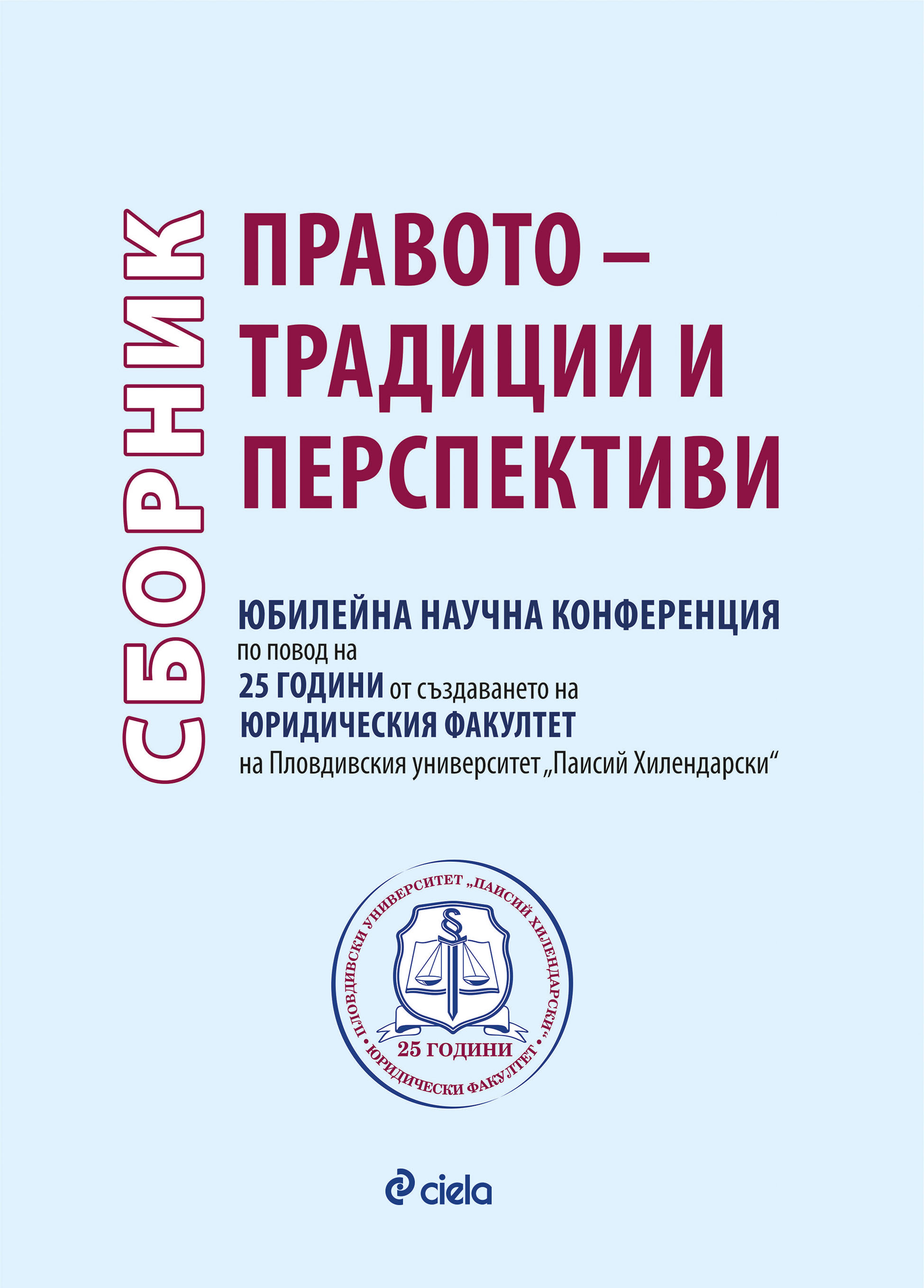
The relationship between the king and the church in France during the Ancien Régime (16th-18th centuries) can be well explained by the issue of property. In the 1670s, Colbert called for a complete reform of royal landholdings in Brittany, with mandatory justification for all alienations. The reform was critical to many landlords, especially the church, since some portions of their lands had encroached on the royal domain. The review of suspected frauds and purchases proved the king's sovereign power in a pays d’états and the crucial role of the domanialité in the Kingdom of France during the 17th century.
More...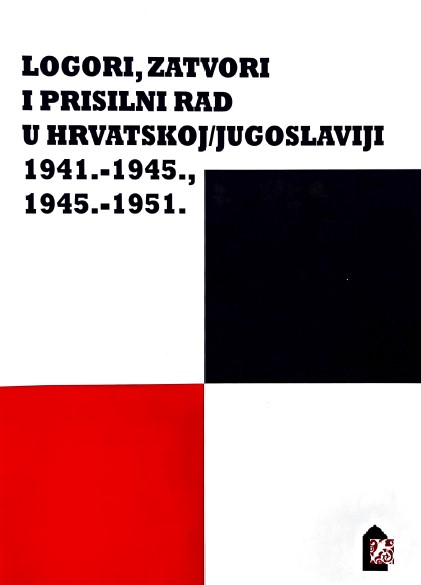
This work reviews the judicial process directed against Catholic priests in Osijek in the period immediately following the Second World War. The main characteristics of Church-State relations at the time of these trials is described in the introductory part of this article, and a short review of criminal law in postwar Yugoslavia is provided, which was the legal basis by which the regime carried out its revenge against people who did not share its political views. In the next part of the work the author presents six individual cases substantiated by available archival documents, of which the authentic transcripts of the court are particularly interesting.
More...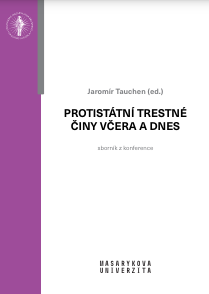
The history of law indeed refers to persons handing down judgments and often offers interesting stories, such as the story of a judge working under various political regimes Dr. Pavel Korbuly (1906–1970). On May 4, 1934, Korbuly was appointed a single judge in criminal matters, after 1948 he became an instrument of justice under the communist regime and was one of the most active judges of the State Court in Bratislava. Prior to the Vienna Arbitration, he was a judge in the Czechoslovak Republic, then in Hungary, and after 1948 he was one of the judges who tried and sentenced victims of the communist regime (more than 500 people) in Slovakia. By the same communist regime, however, Korbuly was later prosecuted due to his active support of the anti-communist uprising in Hungary in 1956. Unlike others, he was one of the judges who had realized their responsibility for convicting the innocent and committed public repentance. From this perspective, his life story is unique in Central Europe as well as worldwide.
More...
The issue of the legal regulation of criminal offenses against the republic is interesting and concise, as it points to the importance of protection and security of the societal interests of the Slovak Republic. Defining the individual facts of crimes against the republic ensures protection against crimes that may threaten the very democratic establishment of the republic, its sovereignty, security, defense, as well as its territorial integrity. In the Slovak Republic, the area of crimes against the republic has undergone several changes, in particular the recodification of criminal law. The main crimes related to the ideology and organization of the socialist state were changed after 1989. The basis of the recodification changed the system of the Criminal Code, which expressed a change in the priority of protection of basic human rights and freedoms of individuals over the interests of the state. This change points out the position of the values of the citizens of the Slovak Republic in today’s modern state and at the same time regulates the obligations that the citizen of the whole society has.
More...